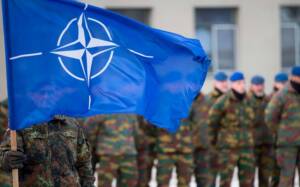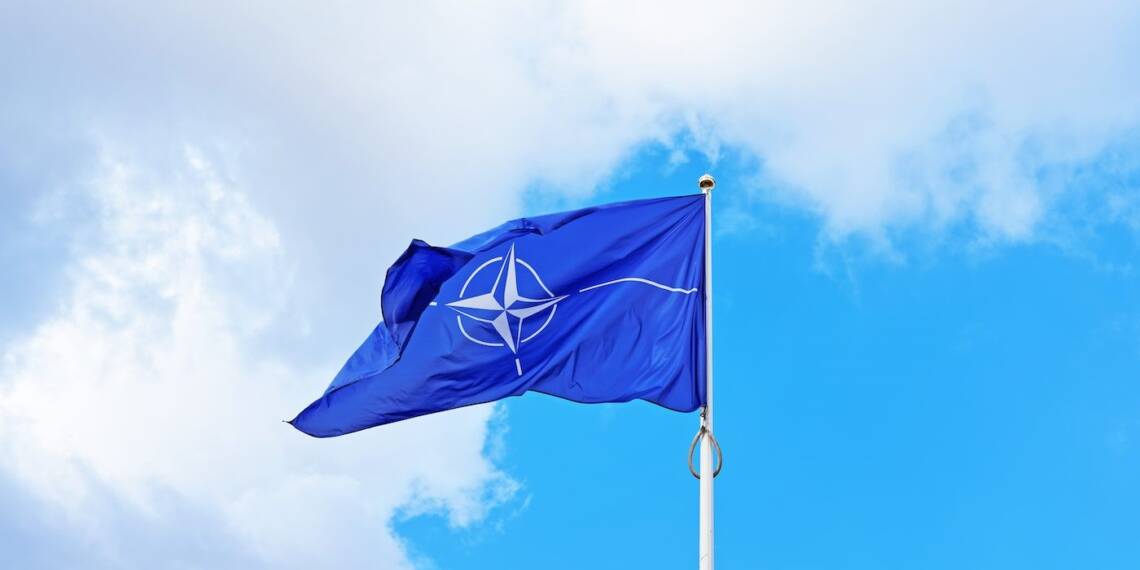Trump told NATO nations to increase Military spending to 2% of their GDP or kiss American security goodbye. European nations got in a huddle and then decided that they would do it. Now, it seems, it’s not going to happen after all!
Sweden’s accession to NATO has reignited discussions on defense spending within the alliance. Traditionally neutral, Sweden’s participation is seen as a step towards sharing the burden of continental defense. However, this development underscores a persistent issue: the majority of NATO members, including Sweden, allocate less than 2% of their GDP to defense. This spotlight on defense budgets reveals a broader challenge faced by many European countries, which stems from financial constraints limiting their ability to increase defense expenditure significantly.

Join us on Telegram: https://t.me/tfiglobal
Critics often cite a gradual increase in NATO members’ defense spending as a counterargument. While it is accurate that there has been an uptick, the overall investment remains insufficient, with only 11 of the member states meeting the 2% target in 2023. Promises of future increases are precarious, dependent on political will and economic circumstances. Sweden, for instance, has been lauded for its commitment to raising defense spending to 2% by 2028, but this projection is contingent on consistent funding increases—an uncertain prospect.
The issue is further complicated by the economic principle known as the “guns and butter” model, which illustrates the trade-off between military spending and social welfare. Sweden, like many European nations, prioritizes social services, funded through high taxation, over defense. This approach reflects a broader European tendency to allocate resources towards social safety nets rather than military capabilities, a choice influenced by the relative stability and peace the continent has enjoyed.
Read More: As NATO loses Ukraine, they create another FRONT!
The United States stands in contrast, with its substantial wealth enabling significant investments in both defense and domestic welfare. This discrepancy highlights a fundamental difference in how NATO members prioritize and manage their budgets, reflecting diverse economic capabilities and policy preferences.
The financial dynamics of defense spending among NATO member states reveal a complex situation that contrasts sharply with the more flexible budgeting capabilities of the United States. European NATO members face significant challenges in increasing their military budgets due to the constraints of their existing economic models, which are heavily reliant on high taxation to fund comprehensive social safety nets. These constraints limit their ability to make substantial, sustained increases in defense spending without resorting to politically unpalatable measures.
European countries could theoretically enhance their defense budgets in two primary ways: by either raising taxes or cutting social spending (“butter”). However, both options present severe political risks. European citizens, already burdened by high taxes, are unlikely to support further tax increases designated for military spending (“guns”). Similarly, any reduction in social services, which have become a point of national pride and a benchmark of European quality of life since World War II, would likely provoke significant public backlash.
Read More: Russia is making a bonfire out of Pricey NATO Weapons
The dilemma stems from decades of mixed messages from European leaders regarding defense spending. On one hand, they have criticized the United States for its militaristic approach and substantial defense budget. On the other, there has been resistance to taking on greater responsibility for their own defense, as highlighted by European reactions to suggestions of burden-sharing by the U.S. This inconsistency has left European establishments in a difficult position, unable to significantly adjust defense spending without facing potential political consequences.
The increasing skepticism in America regarding the defense of allies who do not significantly contribute to their own defense marks a potential turning point in NATO dynamics. European nations find themselves in a predicament of their own making, stemming from a longstanding reliance on American military support. This situation is further highlighted by Sweden’s recent accession to NATO, which, despite its strategic benefits for the Baltic Sea region, underscores the necessity for European nations to assume a larger role in regional defense efforts. The Baltic states, each committing at least 2% of their GDP to defense, exemplify the desired commitment. As such, the responsibility of patrolling the Baltic Sea, now largely encircled by NATO members, should logically fall more to European members like Sweden, rather than continue to predominantly rely on American naval presence.







